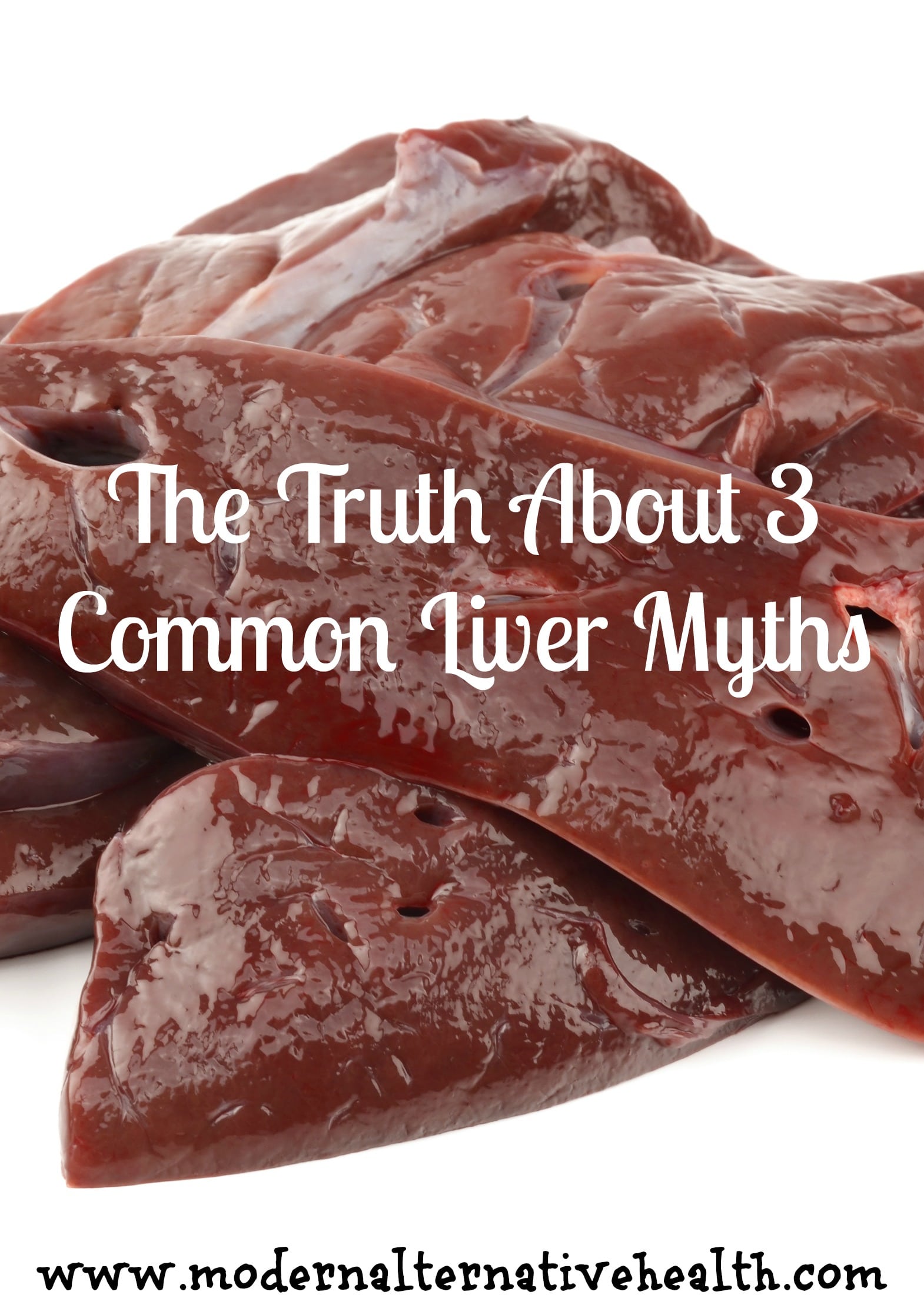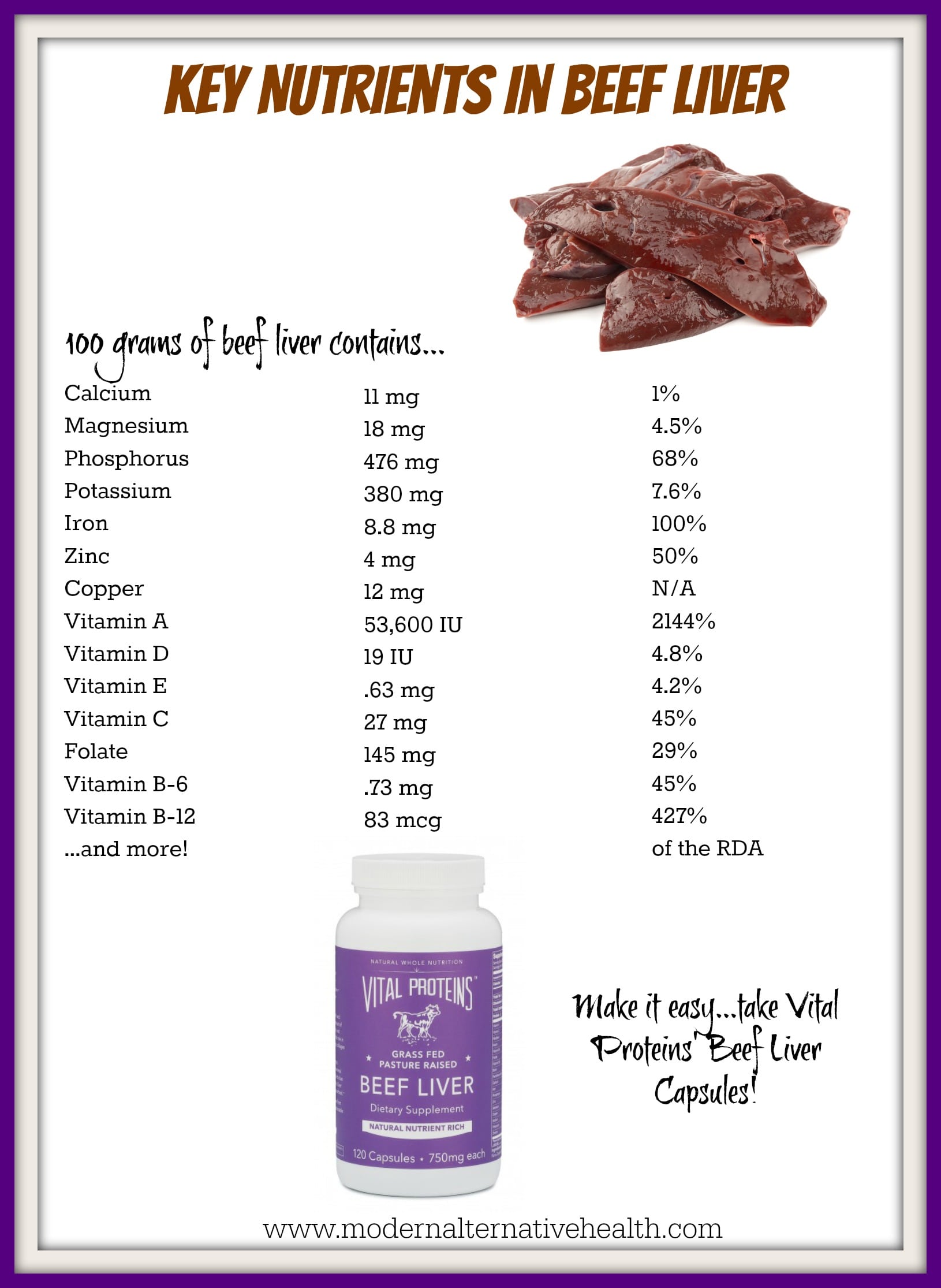A lot of people remain uncertain about liver. Is it good? Is it bad? Is it something you should be eating — or better off avoided?
There are a lot of different questions to answer when it comes to liver. But we’re going to dive in and do it!
The Truth About 3 Common Liver Myths
People have several concerns about liver:
- It’s a toxin filter and could store them
- It’s too high in vitamin A
- It’s too high in cholesterol
There are other concerns (like thinking liver is just yucky, or that no one should eat any animal foods), but we’ll stick with these three right now. They are the main concerns raised by people who otherwise think that animal foods, and even certain organ meats, have a place in our diet.
But are these just liver myths…or is there some truth to it?
Liver is Full of Toxins
…but is it, really?
Actually, no. The liver’s job is to filter the toxins when an animal is alive. It helps to break down harmful chemicals, which are then excreted from the body. If they’re not excreted, they are usually stored in fat cells (which is why you should be careful about your animal fats!). The liver itself does not store the toxins, though.
The liver’s main job is to convert nutrients into forms that our bodies can use, as well as storing excess nutrients for when we need them. It neutralizes and helps excrete toxins. (See here.)
So, a healthy cow’s liver is not going to have toxins stored in it. What it will have is incredibly high amounts of stored nutrients!
One liver myth busted!
Liver is Too High in Vitamin A
We’ve all heard that high levels of vitamin A can be toxic. But what evidence is there for that?
This study says that toxicity is actually hard to achieve through dietary sources and supplements, and that a “constant supply” from breast milk or food is actually necessary for optimal health. Plus, there is actually very little evidence that vitamin A from diet is ever toxic; and the estimated level required for toxicity is 25,000 – 50,000 IU everyday for several months (see here).
Furthermore, beta-carotene conversion to vitamin A (beta-carotene is found in plants) is about 4:1 at best, and drops as the dose increases, as low as 55:1 in one study. (See here.)
The RDA for vitamin A (which is the minimum amount required to stave off deficiency, not the optimal dose) is about 800 mcg (or about 2500 IU).
Toxicity from liver would require consuming 10 – 20 times the RDA daily, or about 50 – 100 grams of liver daily, for a period of several months. This is highly unlikely and not recommended anyway!
In contrast, vitamin A deficiency can actually lead to a depressed immune system, infertility, stunted growth, blindness, and a whole lot more.
Two liver myths busted!
Liver is Too High in Cholesterol
Liver does contain cholesterol, it’s true.
Recent evidence shows that dietary cholesterol is not associated with heart disease, though! (See here, and here.) The amount of cholesterol that liver contains is irrelevant, since it’s not causing any damage.
Three liver myths busted!

Why You Should Eat Liver
So, we’ve busted three liver myths about liver so far — that it’s full of toxins (no), that the vitamin A is at toxic levels (no), and that it’s too high in cholesterol (no).
These are reasons why you shouldn’t avoid liver…so how about some reasons why you should actually eat it?
Liver is a super nutritional powerhouse. Just check this out!

Beef liver is especially high in a few key nutrients that pregnant and breastfeeding mothers need — like iron, vitamin A, vitamin C, folate, vitamin B-6, and vitamin B-12.
A lot of people aren’t fans of liver served up on a plate — though if you are, good for you! And even if you enjoy liver, you may not serve it very often.
Liver pills to the rescue!
I’ve been taking liver pills on and off for about three years now. I especially take them when I get my period — they really seem to help me maintain good energy levels then, and minimize cramps and bleeding.
Vital Proteins has just recently released their liver pills. They’re made from dessicated, grass-fed liver — so they’re high-quality, clean, and amazingly nourishing. 4 capsules (about 750 mg each) is roughly equivalent to about 10 g of fresh liver. (Remember, you’d have to take about 40 capsules a day for several months to actually reach vitamin A toxicity, so you’re perfectly safe with 4.)
Check out the Vital Proteins liver pills. They are an excellent addition to a healthy supplement routine!


I think it is rather a matter of taste.
Many people do not enjoy it; this is a fact.
Try “hígado encebollado”, that is, liver cooked whith onions (there are plenty of this recepies with variants in the net)